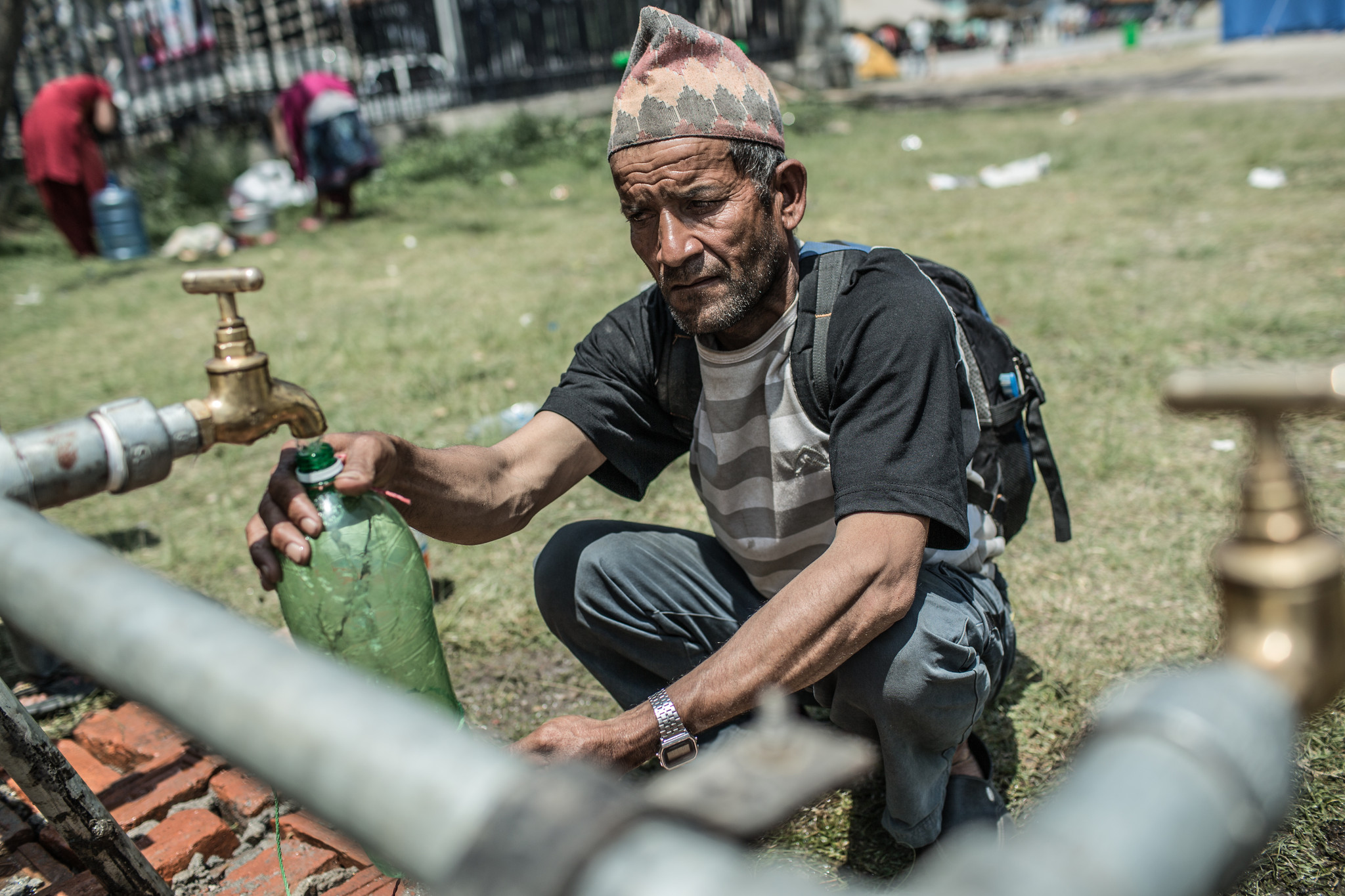After the earthquakes, another threat looms. If we act now, we can save lives.
They survived two major earthquakes and more than 100 aftershocks. Some lost their homes and even their loved ones. But as they struggle to put their lives back together, many in Nepal now face yet another hardship: the lack of clean water.
In Kathmandu Valley and beyond, tens of thousands of people are living in temporary camps without access to clean water and sanitation facilities. This situation poses a major health risk, because diseases like cholera thrive in wet, crowded, unsanitary conditions. Without a place to wash their hands or get safe drinking water, the most vulnerable—including the injured, children, and pregnant women—could become seriously ill.
And with Nepal’s rainy season starting in a matter of weeks, these conditions will soon become much worse. "We are in a race against time [with] monsoon season coming in June," Oxfam’s Darius Teter told NPR yesterday.

Nisha Agarwal, CEO of Oxfam India, just visited one rural community in the hard-hit Gorkha region. “Water is a big problem [in this area], especially for women,” she said. “All of the pipes in the village, which supplied water for drinking, washing, and bathing, are no longer functional. Toilets [are] also a big issue. All the toilets have been completely destroyed and there are serious safety concerns. Women are forced to look for private spaces in the open.”

With your support, Oxfam has so far helped more than 53,800 people in Nepal access clean water. In Kathmandu Valley, we have been delivering clean water and hygiene kits to people living in open-air camps. In other districts, including Gorkha and Sindhupalchok, we are installing latrines and water bladders, and providing tarpaulins, blankets, ground sheets, hygiene kits, and other essential aid.
Food is also a critical issue: many people lost their harvested crops and seeds when their homes collapsed. Oxfam and partners have distributed emergency food and are looking at ways to help farmers quickly get back on their feet. In hard-hit Sindhupalchok, we have begun distributing feed for livestock.
To make sure the right aid reaches people quickly and effectively, Oxfam is partnering with Nepalese non-governmental organizations and trained volunteers who know the local language and communities.
It’s been a major effort so far. But with the rainy season starting soon, and tens of thousands of people still living outdoors, we’ll need your help to keep reaching those in need.
Help rush clean water and other essentials to earthquake survivors.



